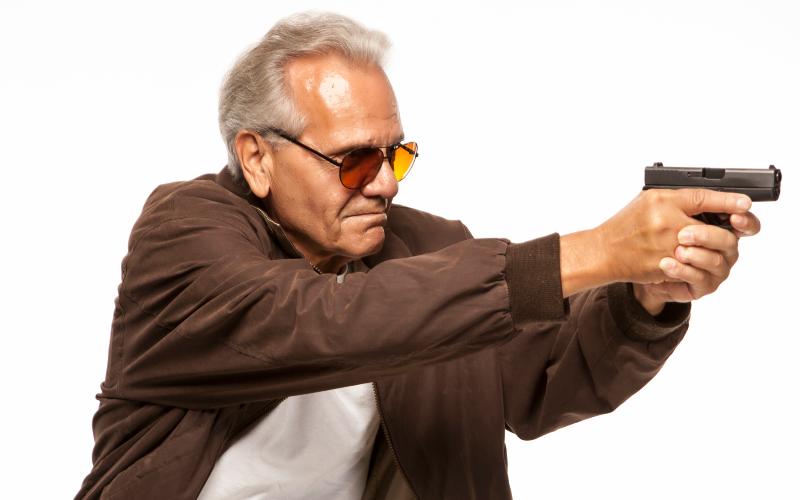Rules for older shooters: Understand that things change during your golden years
One of the recurring themes of questions we receive here at the USCCA has to do with older shooters and some of our training tips. Basically, readers and viewers continue to ask questions like the following: “Can you provide any training tips for those of us who can’t move the way you do? Some of us are no longer so limber.”
The short answer is “No.” But the longer answer is far more important from a personal safety and legal standpoint.
So let’s get to the short answer first.
There are so many different people with different physical abilities that I could not possibly create enough training drills to adequately address even a small portion of all the questions people have. It is with this consideration of the vast differences in human ability in mind that we must address the legal concept of what are calledvictim/subject factors. Remember this term. You are the victim. Your attacker is the subject. (We used to use the term suspect, but lawyers have said naming someone as a suspect violates the idea of innocent-until-proven guilty by attaching a negative label before the individual is judged in a court of law.)
In a nutshell, the concept of victim/subject factors allows a victim to attempt to stop an attack by using more force sooner than another person in similar circumstances, so long as the factors giving the attacker an advantage can be clearly articulated to investigators or a jury.
Let’s look at an exaggerated example. Suppose a 25-year-old Army Ranger is walking through the parking lot of a local supermarket and a man who says, “Give me your wallet or I’ll punch you in the face and take it,” approaches him.
Now suppose a 75-year-old retiree is walking through the parking lot of a local supermarket and a man who says, “Give me your wallet or I’ll punch you in the face and take it,” approaches him.
In the second example, the 75-year-old man is less able to escape. He is less able to move to cover. He may be less able to quickly access a cell phone and call for help. He is certainly less able to engage in a physical fight. As a result, he is given greater leeway in when he can employ his firearm to defend himself.
Certainly the attacker, using only his fists and feet, has the ability to inflict death or great bodily harm on the 75-year-old man. The threat is imminent in that the attacker has a weapon, intent, and means to carry out his threat.
Remember, you can only use your firearm against an imminent deadly threat. Well, here you have one.
In this case, I would tell the Army Ranger to attempt to move to cover, provide a verbal challenge in hopes the subject would back down, attempt to leave the area, and perhaps even employ some sort of lesser level of force. In this case, I love ultra-bright flashlights since they temporarily disorient the attacker and allow the victim a chance to escape.
BUT, because the 75-year-old is not as quick, limber, or strong, I would advocate for the older person to immediately draw the defensive firearm while simultaneously issuing a stern verbal challenge: “Get back. I will defend myself.”
This needs to be done early enough in the encounter to keep the subject at what the victim considers a safe distance. If the subject continues to press the attack, deadly force is an option. If the subject decides to leave the area, that’s great. Now the victim needs to call 911 and report the incident to ensure the subject doesn’t call police and say, “Some crazy old guy pointed a gun at me.”
The most important element is not your physical ability but your ability to articulate why you chose to use the level of force you employed.
We here at the USCCA cannot teach you to be more limber. We cannot teach you training drills that will shave 20 years off your reaction time. We can and do advise you to take decisive action sooner and to be able to articulate exactly why you did so.
The sad truth is that after such an incident, you may need a lawyer to help you deal with the police; your USCCA membership will help you with that.
Don’t wait for the attack to come to you. Action defeats reaction, every time. We can’t make you any younger or stronger. But we can show you how your age and wisdom can protect you against a younger, stronger attacker.
–Kevin Michalowski

No comments:
Post a Comment
Thanks for commenting. Your comments are needed for helping to improve the discussion.